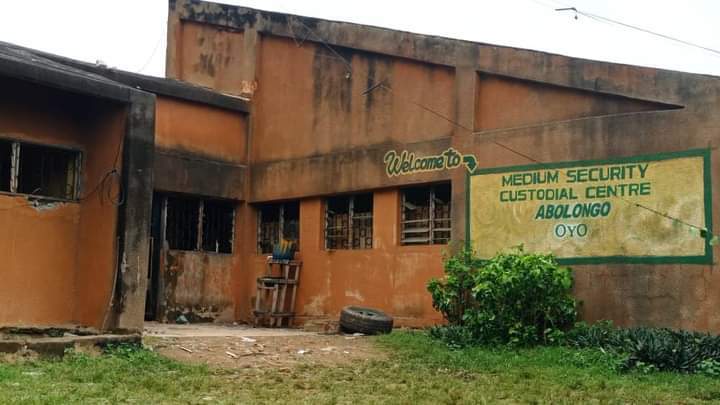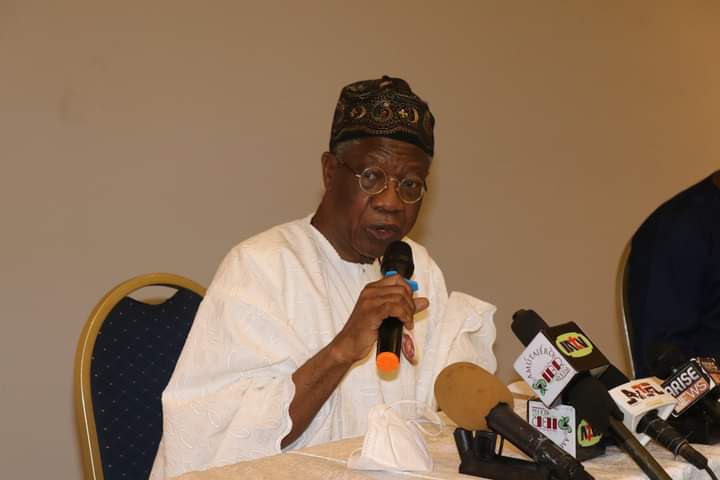My first experience of the Nigeria Prisons system (which got a name change to correctional service in 2015) was in 1994. At that time, I was a youth corp member serving my beloved nation in Ilorin, Kwara state. The Nigeria Christian Corpers’ Fellowship (NCCF) then had a group of corp members who visit the prison once every week to fellowship with the prisoners and try to help them develop spiritual strength and positive attitude to overcome whatever habits or misfortune that might have led to their incarceration or to help them build faith in God to cope with their time in the gulag. I had joined that group of prison evangelists prompted by Jesus Christ’s metaphor that feeding the hungry, caring for the needy and visiting people in prison are some of the ways to show our genuine love and affection for God and for humanity.
My visits to the Ilorin prison lasted for almost my entire service year. After my first two months of visitations, the inmates developed enough confidence in me to open up fully to me. They told me things that shocked me to my marrows. I cried many times on my way home after each bare-it-all discussion with the inmates. I couldn’t believe the level of deprivation they endure daily in the facility. I was overtaken with anger, sorrow and grief because of the things I learnt both from the inmates and some warders who still have a conscience. I found it hard to come to terms with many of the things I was told because those things simply portray the leadership of the service as people who should be in jail themselves. Some of the things I heard also convinced me that our justice system that condemned many of the inmates and locked them away was far from being just and should itself be put on trial for penance and restructuring.
In response to many of the things I heard from those inmates, I decided to take two critical actions that were within my power. First, I sourced essentials like toiletries, detergents, toothpaste and drugs from big companies in Lagos where I lived. I got huge supplies from PZ, Lever Brothers and Emzor Pharmaceuticals that could last for a while. Second, I worked with some of the officers to compile the names of inmates who ought not to be in that prison in the first place, and those whose actions by my observation and the testimonies of the officers made them worthy of pardon. I reached out to my NCCF prison fellowship colleagues in other states and asked them to help me compile names also. I forwarded about two hundred and eighty names to the minister of justice for consideration under the prerogative of mercy. I didn’t know what happen to the prisoners whose names were forwarded thereafter, but for my service in Ilorin prison, I won the NYSC Kwara state award in October 1995.
All of these happened 27 years ago and since then, every one of my visits to the prison has been fleeting visits that lasted for about an hour. I didn’t know much about what went on behind the walls again until two years ago when I visited the Kaduna central prison on behalf of a boy who was locked up in that prison on awaiting trial. The two other guys he was charged with spent only a week in prison because their families paid the N100,000 required to get their bail. He was not so fortunate and he was there for thirteen months until he was able to get my number.
Advertisement
The first thing that got my attention as I was with the controller of Kaduna central prison was the information written on a blackboard in his office. According to that piece of information, the capacity of the prison was around 500 inmates but there were 1150 inmates locked up there at that time.
The tales of the young man who I went to see in the prison convinced me that Nigeria is a country steadily moving backwards because of poor leadership and a civil service that worships money and has murdered conscience. It was too heavy for me to swallow that our prisons today are worse than what I saw in Ilorin prisons 27 years ago.
The second thing I noticed at the Kaduna central prison was the colonial heritage structure that we still take pride in in the 21st century. As my eyes roamed around the depressing facility, my mind raced quickly back to the first American prison I saw in Dallas, Texas. The prison was like a central bank building in Nigeria. It contained gyms, laundry, sports facilities, classrooms and other amazing features that truly made it a correctional facility. Nigeria’s prisons look like hell when compared with modern correctional facilities across the world.
Advertisement
If Nigeria’s prisons including the new ones that are being built still look much like the colonial-era prisons where the inmates then were not only prisoners but slaves too, it could only mean those leading the affairs of Nigeria and those heading our prisons are people who ought to be locked up in zoos because their type of mindsets can never give birth to true development.
The third thing I noticed at the Kaduna prison was how everything is connected. The weaknesses in the law enforcement and justice system in Nigeria is destroying the already terrible facilities of the various prisons. Over 45 percent of the inmates that overpopulated the Kaduna central prison were awaiting trials. Half of that 45 percent were locked up in the prison for cases that a good police department would have handled and resolved. This is pretty much the case in other prisons across Nigeria.
The abnormalities in Nigeria’s justice system is turning our prisons into jungles where only the strongest survive and where a minor offender goes to become more hardened instead of becoming corrected to be restored and reintegrated into the society at the end of their time.
Osho is a change strategist and development architect. He believes Nigeria has the capacity to become one of the countries on earth with the right leadership
Advertisement
Views expressed by contributors are strictly personal and not of TheCable.
Add a comment







